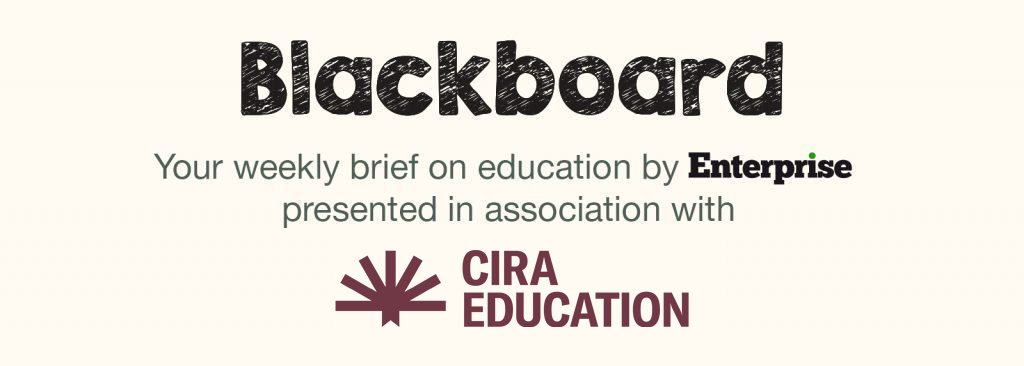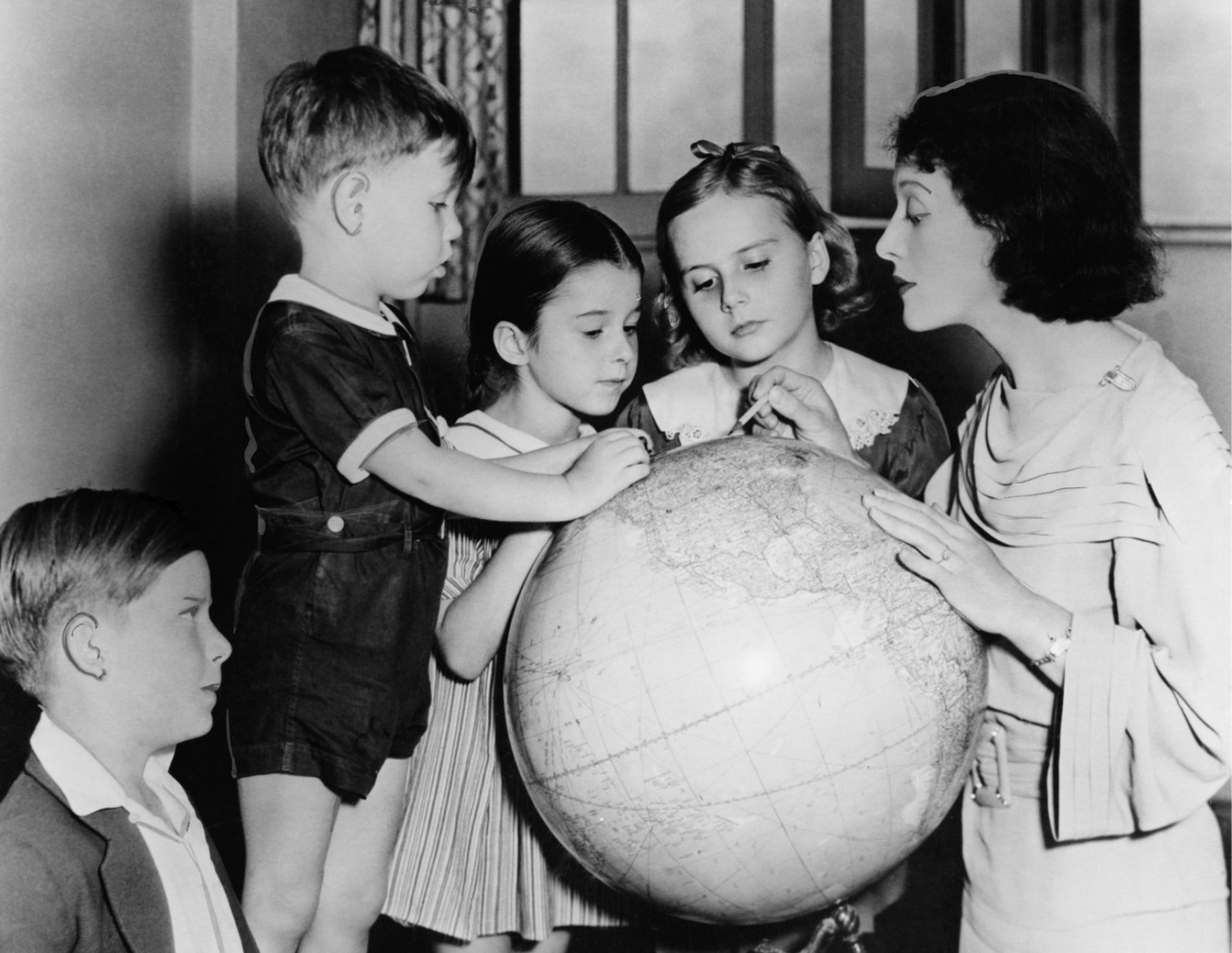
It's going to be some time before we see new private schools on the map

Private schools + universities revisit construction plans amid hefty price tags: The education sector has by no means been spared from the tailspin the construction industry has been sent into as a result of the soaring cost and shortage of building materials in recent months. Many education outfits in Egypt are faced with the same challenges real estate developers have been up against for the past year but under even tighter budgetary constraints. With few options at their disposal school operators have almost entirely brought new projects to a standstill, potentially restricting the availability of quality education for new students over the coming years, according to insiders in the sector we spoke with.
REFRESHER- Since last year, higher energy, raw materials, freight and shipping costs have been pushing building material prices higher and causing real estate and infrastructure developers to suspend or drastically reevaluate their projects. Smaller contractors — which would include those hired to build new private schools — have been among those most vulnerable to the rising cost of building materials in their projects, which are showing no sign of slowing down this year.
For projects already in progress, some schools are cutting back on amenities: Some Schools are reconsidering materials and certain non-essential specifications to their ongoing projects to help cut back on costs. “We’ve made alterations to our designs to save more. Things like basements that were included in our initial plans might be removed to save on construction costs,” Mostafa tells us.
Others are opting to instead expedite their construction schedules to get ahead of future cost increases that are now inevitable: “We fast tracked the projects we’re working on, like a university in Assiut, for example, to help us save on rising costs,” CIRA CEO Mohamed El Kalla tells us.
But almost all new construction for schools is on standby: Price increases for steel (which currently sells for as much as EGP 28.5k per ton) and cement (which is being sold for as much as EGP 1.9k per ton) have weighed heavily on most schools’ construction plans. “We’re reassessing plans and reevaluating how feasible these projects are under the new climate,” Eduhive CEO Karim Mostafa tells us. For CIRA, new projects are also being restructured and revisited. “Every single project we have not yet started working on is back to the drawing board,” El Kalla tells us.
Halted construction could lead to a tighter supply of quality education: Since the cost of CAPEX has gone up by 30%, the only way for schools to move forward is by passing that cost on to consumers, El Kalla tells us. But the problem with doing so is that these higher fees exclude a large portion of the market looking for high-quality, affordable education. “The provision of quality education at decent campuses for middle-class students is going to be very scarce for the coming three years,” El Kalla tells us.
For existing schools, new construction prospects are stymied by tuition caps: For schools looking to expand their current campuses or build new facilities, construction costs are difficult to fully pass on in the form of higher student tuition due to regulations that prevent schools from raising tuition more than 7% annually.
But raising tuition fees by that much would have its own set of downsides: “Even if we were permitted to raise tuition by 40%, parents wouldn't be able to take that hit,” Mostafa tells us.
There’s still a lot of uncertainty looming when it comes to construction plans: “The picture is still foggy and it's hard to budget accurately, so under this climate I can't make decisions about new ventures. I have to let the dust settle in order for us to proceed with new things. We’re focused on what we have to ensure we can still provide quality service at a reasonable price,” Mostafa tells us.
Schools are still reeling from back to back crises: “In the past 10 years schools have been under a lot of strain. Schools have had to make it through the first devaluation in 2016, followed by covid-19 when they had to heavily invest in e-learning infrastructure and now we’re going through another cycle of devaluation — so schools are already depleted,” El Kalla says.
For now, most schools are focused on addressing internal challenges with their existing facilities: Even stationary and basic school infrastructure like tables, chairs, paper, and pens are seeing prices dramatically rise for schools and in many cases face difficulty sourcing these materials. “We’re trying to minimize risk and cost. Anything we need to purchase from abroad we’re putting off this year. We’re using what we already have in our possession,” El Alsson Executive Director Karim Rogers tells us. “Textbooks, teacher books, stationary — anything that might come from an overseas shipment isn’t here and no one knows if they will be available next year,” a teacher at a private school who requested to remain anonymous told Enterprise.
Your top education stories for the week:
- The Higher Education Ministry will launch a national strategy for higher education and scientific research on 7 March, according to Higher Education Minister Ayman Ashour. The launch will be the start of a “serious societal dialogue to upgrade higher education and scientific research” in Egypt.
- The British Embassy in Cairo launched a GBP 2 mn initiative to help Egyptian graduates improve employability skills and land jobs, in partnership with the Higher Education Ministry and the International Labour Organization.
- Uppingham Cairo begins construction: Uppingham Cairo, the Egypt leg of UK’s Uppingham School, celebrated the first day of construction last week in a groundbreaking ceremony attended by representatives from Uppingham School, New Era Education, Bloom Education, New Giza and British Ambassador Gareth Bayley, according to Al Borsa.
- AAST promises to launch affordable locally-assembled EVs: The Arab Academy for Science, Technology and Maritime Transport stated that it will start assembling the country’s first Egypt-made EVs in the next six months, and will sell them at much lower prices than international auto firms.
Enterprise is a daily publication of Enterprise Ventures LLC, an Egyptian limited liability company (commercial register 83594), and a subsidiary of Inktank Communications. Summaries are intended for guidance only and are provided on an as-is basis; kindly refer to the source article in its original language prior to undertaking any action. Neither Enterprise Ventures nor its staff assume any responsibility or liability for the accuracy of the information contained in this publication, whether in the form of summaries or analysis. © 2022 Enterprise Ventures LLC.
Enterprise is available without charge thanks to the generous support of HSBC Egypt (tax ID: 204-901-715), the leading corporate and retail lender in Egypt; EFG Hermes (tax ID: 200-178-385), the leading financial services corporation in frontier emerging markets; SODIC (tax ID: 212-168-002), a leading Egyptian real estate developer; SomaBay (tax ID: 204-903-300), our Red Sea holiday partner; Infinity (tax ID: 474-939-359), the ultimate way to power cities, industries, and homes directly from nature right here in Egypt; CIRA (tax ID: 200-069-608), the leading providers of K-12 and higher level education in Egypt; Orascom Construction (tax ID: 229-988-806), the leading construction and engineering company building infrastructure in Egypt and abroad; Moharram & Partners (tax ID: 616-112-459), the leading public policy and government affairs partner; Palm Hills Developments (tax ID: 432-737-014), a leading developer of commercial and residential properties; Mashreq (tax ID: 204-898-862), the MENA region’s leading homegrown personal and digital bank; Industrial Development Group (IDG) (tax ID:266-965-253), the leading builder of industrial parks in Egypt; Hassan Allam Properties (tax ID: 553-096-567), one of Egypt’s most prominent and leading builders; and Saleh, Barsoum & Abdel Aziz (tax ID: 220-002-827), the leading audit, tax and accounting firm in Egypt.